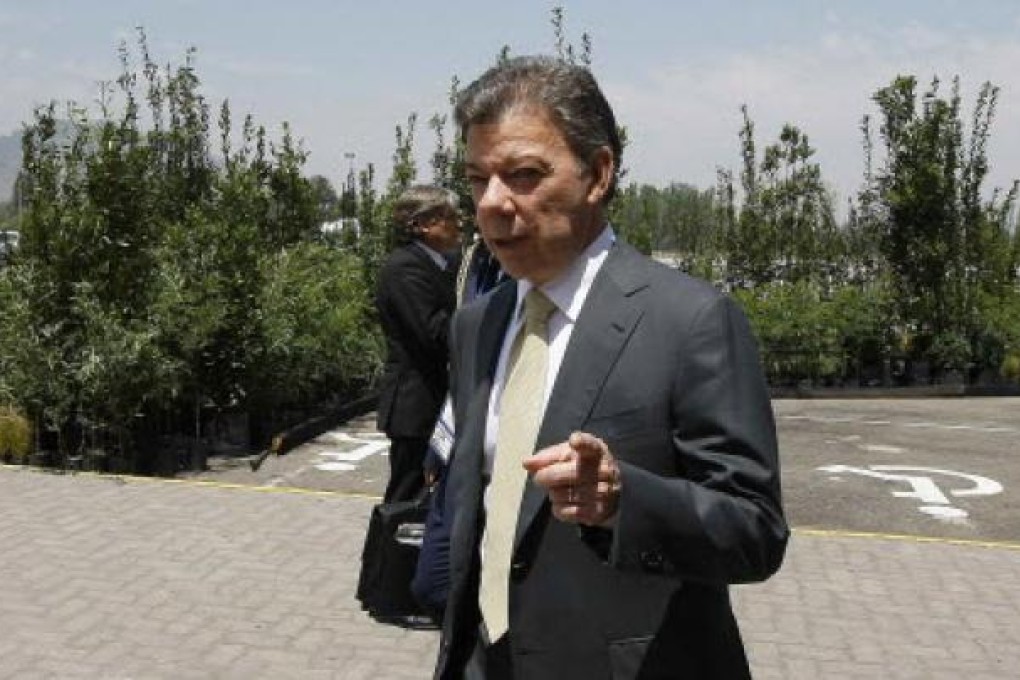
The recent kidnapping of several foreigners by Colombia’s leftist ELN guerrilla group may, paradoxically, be aimed at prodding the government into peace talks, analysts say.
The government is already carrying out peace negotiations in Havana with Colombia’s largest rebel group, the Farc, but President Juan Manuel Santos has not been keen to extend the negotiations to the lesser-known ELN.
The ELN, which professes to be eager for peace talks and has even formed a negotiating team, has meanwhile embarked on a wave of kidnappings and attacks on infrastructure in recent weeks, in what could be a bid for attention.
“One of their objectives is to draw attention to the peace negotiations,” said Leon Valencia, a former ELN guerilla who now leads an NGO specialising in armed conflict.
“They want in. But resorting to kidnapping to link up to a negotiating table is a very misguided course of action,” he said.
There have been other missteps as well. Santos rebuked the ELN for publicizing behind-the-scenes contacts with the government last year, pouring cold water on the prospects for talks.